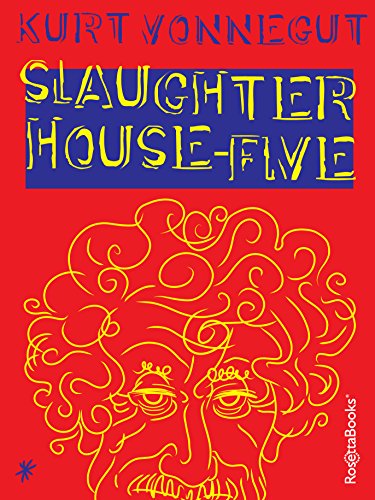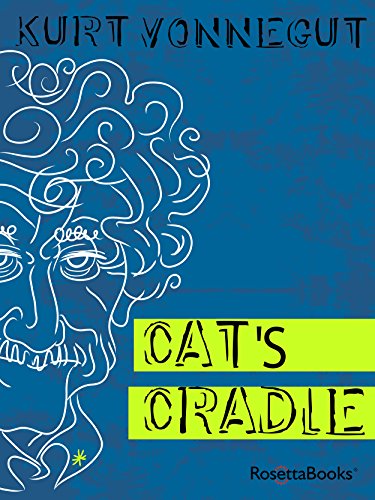Here are some sale-priced gems we found in the Kindle Store today. Note that the prices shown are accurate as of this posting but are subject to change at any time, so if you see anything you like be sure to grab it right away!
Lavinia (4/5 stars, currently priced at $2.99) From Amazon:
In a richly imagined, beautiful novel, an acclaimed writer gives an epic heroine her voice.
In The Aeneid, Vergil’s hero fights to claim the king’s daughter, Lavinia, with whom he is destined to found an empire. Lavinia herself never speaks a word. Now, Ursula K. Le Guin gives Lavinia a voice in a novel that takes us to the half-wild world of ancient Italy, when Rome was a muddy village near seven hills.
Lavinia grows up knowing nothing but peace and freedom, until suitors come. Her mother wants her to marry handsome, ambitious Turnus. But omens and prophecies spoken by the sacred springs say she must marry a foreigner—that she will be the cause of a bitter war—and that her husband will not live long. When a fleet of Trojan ships sails up the Tiber, Lavinia decides to take her destiny into her own hands. And so she tells us what Vergil did not: the story of her life, and of the love of her life.
Lavinia is a book of passion and war, generous and austerely beautiful, from a writer working at the height of her powers.
Sinful Folk: Omnibus 1-4 (4.5/5 stars, currently priced at 99 cents)
A tragic loss. A desperate journey. A mother seeks the truth.
In December of 1377, four children were burned to death in a house fire. Villagers traveled hundreds of miles across England to demand justice for their children’s deaths.
Sinful Folk is the story of this terrible mid-winter journey as seen by Mear, a former nun who has lived for a decade disguised as a mute man, raising her son quietly in this isolated village. For years, she has concealed herself and all her history. But on this journey, she will find the strength to redeem the promise of her past. Mear begins her journey in terror and heartache, and ends in triumph and transcendence.
The remarkable new novel by Ned Hayes, illustrated by New York Times bestselling author/illustrator Nikki McClure, Sinful Folk illuminates the medieval era with profound insight and compassion.
Favorably reviewed by bestselling historical writers Karen Maitland, Brenda Vantrease, Kathryn Le Veque, and Ella March Chase.
Note that this edition includes the first four volumes in the Sinful Folk series.
Crackpot: The Obsessions of John Waters (5/5 stars, currently priced at $1.99)
Crackpot, originally released in 1986, is John Waters’ brilliantly entertaining litany of odd and fascinationg people, places and things.
From Baltimore to Los Angeles, from William Castle to Pia Zadora, from the National Enquirer to Ronald Reagan’s colon, Waters explores the depths of our culture.
And he dispenses useful advice along the way: how not to make a movie, how to become famous (read: infamous), and of course, how to most effectively shock and make our nation’s public laugh at the same time.
Loaded with bonus features, this new special edition is guaranteed to leave you totally mental.
Slaughterhouse-Five (4.5/5 stars, currently priced at $1.99)
Adapted for a magnificent George Roy Hill film three years later (perhaps the only film adaptation of a masterpiece which exceeds its source), Slaughterhouse-Five (1969) is the now famous parable of Billy Pilgrim, a World War II veteran and POW, who has in the later stage of his life become “unstuck in time” and who experiences at will (or unwillingly) all known events of his chronology out of order and sometimes simultaneously.
Traumatized by the bombing of Dresden at the time he had been imprisoned, Pilgrim drifts through all events and history, sometimes deeply implicated, sometimes a witness. He is surrounded by Vonnegut’s usual large cast of continuing characters (notably here the hack science fiction writer Kilgore Trout and the alien Tralmafadorians who oversee his life and remind him constantly that there is no causation, no order, no motive to existence).
The “unstuck” nature of Pilgrim’s experience may constitute an early novelistic use of what we now call Post Traumatic Stress Disorder; then again, Pilgrim’s aliens may be as “real” as Dresden is real to him. Struggling to find some purpose, order or meaning to his existence and humanity’s, Pilgrim meets the beauteous and mysterious Montana Wildhack (certainly the author’s best character name), has a child with her and drifts on some supernal plane, finally, in which Kilgore Trout, the Tralmafadorians, Montana Wildhack and the ruins of Dresden do not merge but rather disperse through all planes of existence.
Slaughterhouse-Five was hugely successful, brought Vonnegut an enormous audience, was a finalist for the National Book Award and a bestseller and remains four decades later as timeless and shattering a war fiction as Catch-22, with which it stands as the two signal novels of their riotous and furious decade.
Cat’s Cradle (4.5/5 stars, currently priced at $1.99)
Cat’s Cradle (1963) is Vonnegut’s most ambitious novel, which put into the language terms like “wampeter”, “kerass” and “granfalloon” as well as a structured religion, Boskonism and was submitted in partial fulfillment of requirements for a Master’s Degree in anthropology, and in its sprawling compass and almost uncontrolled (and uncontrollable) invention, may be Vonnegut’s best novel.
Written contemporaneously with the Cuban missile crisis and countenancing a version of a world in the grasp of magnified human stupidity, the novel is centered on Felix Hoenikker, a chemical scientist reminiscent of Robert Oppenheimer… except that Oppenheimer was destroyed by his conscience and Hoenikker, delighting in the disastrous chemicals he has invented, has no conscience at all. Hoenikker’s “Ice 9” has the potential to convert all liquid to inert ice and thus destroy human existence; he is exiled to a remote island where Boskonism has enlisted all of its inhabitants and where religion and technology collaborate, with the help of a large cast of characters, to destroy civilization.
Vonnegut’s compassion and despair are expressed here through his grotesque elaboration of character and situation and also through his created religion which like Flannery O’Connor’s “Church Without Christ” (in Wise Blood) acts to serve its adherents by removing them from individual responsibility. Vonnegut had always been taken seriously by science fiction readers and critics (a reception which indeed made him uncomfortable) but it was with Cat’s Cradle that he began to be found and appreciated by a more general audience. His own ambivalence toward science, science fiction, religion and religious comfort comes through in every scene of this novel.
The Great Divorce (4.5/5 stars, currently priced at $3.32)
C.S. Lewis’ The Great Divorce is a classic Christian allegorical tale about a bus ride from hell to heaven.
An extraordinary meditation upon good and evil, grace and judgment, Lewis’s revolutionary idea in the The Great Divorce is that the gates of Hell are locked from the inside.
Using his extraordinary descriptive powers, Lewis’ The Great Divorce will change the way we think about good and evil.
A Grief Observed (4.5/5 stars, currently priced at $2.99)
A classic work on grief, A Grief Observed is C.S. Lewis’s honest reflection on the fundamental issues of life, death, and faith in the midst of loss.
Written after his wife’s tragic death as a way of surviving the “mad midnight moments,” A Grief Observed an unflinchingly truthful account of how loss can lead even a stalwart believer to lose all sense of meaning in the universe, and the inspirational tale of how he can possibly regain his bearings.
KF on KND Editor’s note: these books all came to my attention through my subscription to the FREE BookGorilla once-daily, customized email Kindle book bargain alert.
Click here to sign up for the terrific, FREE BookGorilla bargain alert service.







